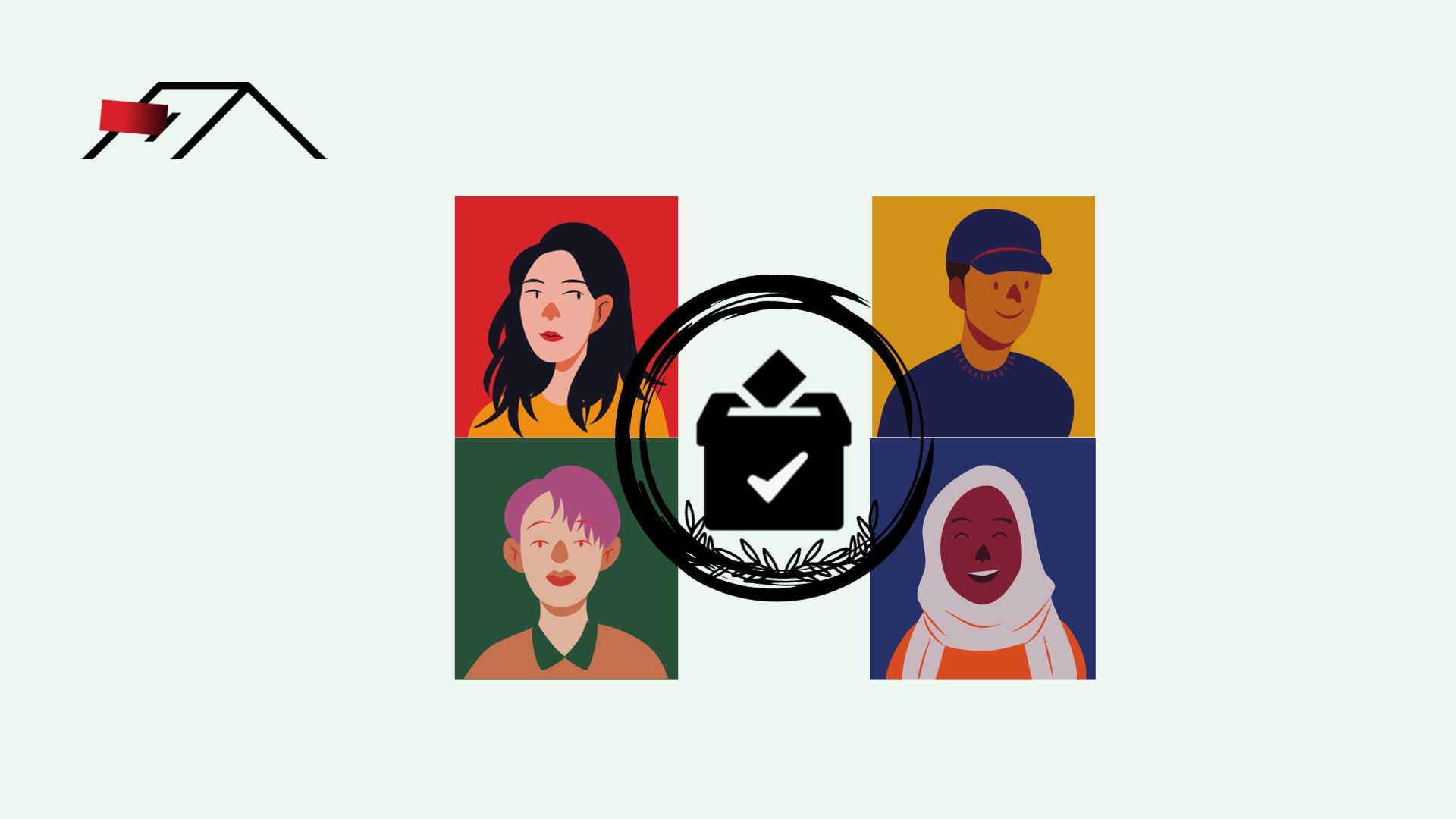Undeniably, the contestants of the 2024 Elections, be it for the legislative positions, and especially for the presidency, are strategizing to win the votes of youth voters. Out of the 204 million registered voters, a significant 56.49% of them are youth voters. This constitutes a substantial and enticing segment of the electorate for politicians vying for positions of power.
Assumingly, the large number is certainly directly proportional to the bargaining power of this youth demographic. With simple logic, it can be said that the larger the size of a group, the higher their bargaining position. With this assumption, the position of youth voters is strategically significant and can determine the victory of the contestants.
This awareness is what drives election participants, especially presidential candidates, to compete in efforts to garner as many votes as possible from youth voters. Youth voters, who are familiar with information technology, are approached by utilizing social media on various platforms as a channel to attract sympathy and convey messages. This is evident from the lively activities of the candidates on social media. Combined with the tweets of their supporters who actively “promote” their candidate while attacking opponents.
Upon closer examination, efforts to influence the political choices of youth voters no longer seem to consider the aspects of substance and the truthfulness of the messages conveyed. There is a lack of meaningful political education. What appears to matter is only who gets what and by what means. In the practice of politics, its significance is reduced to its lowest point. It aligns with what political scientist Harold D. Lasswell stated, that politics is the activity of who gets what, when, and how.
Almost no one cares about the other side of elections, namely the process of educating and maturing citizens in politics and democracy. This aspect is rarely taken into consideration whenever political battles unfold. Even after the elections are over, the political education of citizens is often neglected. This reality gives rise to the expression that the people are only noticed and attended to when the election season arrives.
Therefore, if up to this day, we find a condition in society where meaningful political awareness is far from adequate, part of the blame can be attributed to political parties and their politicians. As democratic institutions, political parties have a moral obligation to educate citizens to be politically aware. Their duty extends beyond just seeking voters’ support; it should involve a sincere effort to enlighten the public through proper political education.
Critical Attitude
As the next generation, the youth, more specifically youth voters, should indeed view the current electoral political reality as something both saddening and worrisome. The burden of the future rests on their shoulders. Contestants should ideally disseminate ideas, concepts, policy proposals, and programs massively, outlining what they will accomplish if elected. Instead of casting charms and flaunting styles through political gimmicks.
Therefore, for the sake of a more promising future for the nation, the roadmap for Indonesia’s development in the short, medium, and long term, proposed by the competing national leaders, should be presented comprehensively. The goal is to allow it to be read, understood, and scrutinized while providing a logical assessment of the feasibility of the proposed policies and programs.
At this point, youth voters should rightfully assert themselves as critical voters. This identity is important as it signifies that they are distinct from other voter groups in their decision-making process, avoiding factors like familiarity, personal preferences, or other subjective and non-substantial elements. This distinction also implies that youth voters are an intelligent generation. Their political taste or choices cannot be dictated by political flattery, let alone gimmicks.
In this framework, the critical attitude of young voters is necessary to scrutinize the policy proposals, programs, and track records of the presidential election contestants. For example, what policies and strategic measures have they taken to address environmental damage, global warming, unemployment rates, natural resource management, leveraging demographic bonuses, ensuring fair legal enforcement, and other relevant aspects.
For this critical attitude to become a collective awareness, a concern for everything related to information about the candidates must be cultivated. The attitude of not easily being influenced or accepting every piece of information as is. Simultaneously, there should be cross-checking of any information before making judgments, let alone decisions.
Literacy Challenges
However, being a critical, intelligent, and rational voter, especially for youth voters, comes with its own challenges. One of the biggest challenges is the willingness to delve deeper into issues, which is still quite low. This is related to the literacy culture, which remains a fairly serious issue.
The youth today tend to lean towards things that are quick and avoid lengthy and exhausting processes. If there’s a fast way, why take the long route? That’s roughly the picture that can be deduced from this situation. Their willingness to gather information is limited to the extent of 280 characters. Consequently, their mastery, let alone knowledge, becomes limited and superficial.
As a result, the ability to counter something differs is not supported by logical or, let alone, in-depth arguments. Take note of the contradictions on one of the social media platforms, where the debates seem to be based on arguments, but the discussions stem more from sentiments.
Youth voters with this type of inclination tend to become followers. They make choices without preceding engagement in the process of gathering and seeking accurate information. Instead, their decisions are influenced by sentiments, likes, pleasures, and attractions guided by what meets the eye.
Certainly, being a voter due to these latter factors is not inherently wrong. However, as youth voters are often identified as the next generation, the way they make their choices should be far from such influences. To make the voice of youth voters meaningful, it’s time to strengthen critical awareness in responding to any situation, especially in elections aimed at selecting national leaders. It is indeed a significant loss if the political choices of youth voters are dictated by contestants through political flattery and gimmicks. Wallahu a’lam bishawab. []
MASHUDI SR.
Commissioner of Banten General Election Commission (KPU) 2018-2023.
Translated by Catherine Natalia
 Rumah Pemilu Indonesia Election Portal
Rumah Pemilu Indonesia Election Portal




